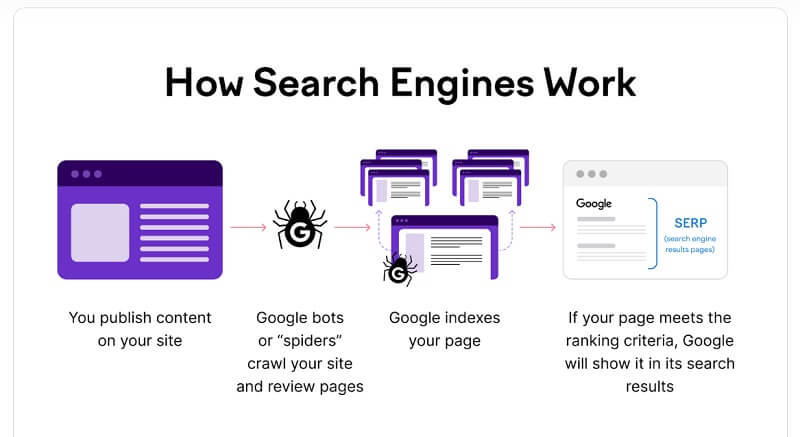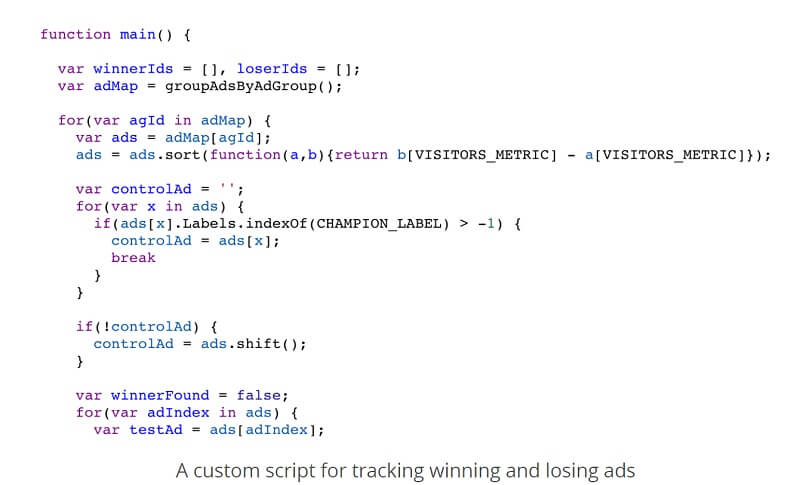
The majority of your time as a digital marketer can be spent working on PPC ads, SEO content, email marketing, social media, or a combination of all of the above.
Marketers could know next to nothing about web development, which is a highly technical subject that requires a totally distinct set of abilities. The configuration of a website, however, might affect your ability to conduct marketing, for better or worse. Web development chores are frequently focused on digital marketing activities.
Today, we’ll discuss how much web development knowledge marketers require and how these two fields interact with one another in the context of digital marketing.
Technical SEO: Where Web Development and Digital Marketing Intersect
Technical SEO is one area where site development and marketing converge. We’ve written in the past on the significance of SEO architecture and how having a solid site design makes it easier for visitors and search engine robots to explore your website. Also, a strong focus on UX services can further streamline the process, ensuring both users and search engines have a seamless experience navigating your site.
This entails creating a logical hierarchy of pages and having the navigation, menus, breadcrumbs, sitemap, and other elements match this. To create the groundwork for SEO success, the website’s structure must be planned out before it is developed.
As a result, site development and SEO clearly complement one another. It follows that when it comes to creating websites, both web developers and marketers greatly benefit from having a solid grasp of technical SEO.
Together, these two teams can build a website that is optimized from the ground up and continue to use technical SEO know-how as the website evolves or expands over time.
Although it is not necessary for marketers to understand every aspect of website creation, having a theoretical understanding of technical SEO may be helpful and is undoubtedly connected to web development and design.

HTML For Online Advertisers
With a certain level of technical understanding and access, there are several things that marketers or other stakeholders may modify on a website. However, for the majority of tasks outside of adding text and photos, a web developer is required.
Personally, I like to try things out on my own before asking our harried web engineers to take over if I discover I don’t have the expertise or access. To that end, I frequently go in and browse the website’s admin section to see if I can do what I want to.
While most users can easily publish or update blog entries, for example, there may be some adjustments that are slightly more difficult but still doable with the right knowledge. Using HTML as an example.
You may format text or pictures using HTML (hypertext markup language), such as bolding text, aligning images to the left or right, or even adding schema code.
When you first look at HTML code, it might seem a bit intimidating, but if you know what it all means, you can utilize it to make adjustments, which is helpful if you’re using a CMS that isn’t exactly functioning as you would want.
Web Development in PPC
In the world of digital marketing, Pay-Per-Click (PPC) advertising has become an essential tool for businesses to drive targeted traffic to their websites. However, many businesses overlook the crucial role that web development plays in the success of their PPC campaigns.
Web development is not just about creating a visually appealing website; it also involves optimizing the site for PPC conversions. A well-developed website can enhance user experience, increase conversion rates, and ultimately maximize the return on investment (ROI) from your PPC campaigns. Incorporating Google Ads reporting software provides valuable insights, enabling better alignment between web development and PPC goals.
When it comes to PPC, web development plays a significant role in several key areas. Firstly, an optimized landing page is essential for conversions. You can improve your chances of capturing leads or making sales by ensuring that your landing pages are fast-loading, mobile-friendly, and have clear call-to-action buttons.
Secondly, proper tracking implementation is crucial for effective PPC campaign management. Web developers can help set up conversion tracking codes and integrate them with your PPC platforms such as Google Ads or Facebook Ads, or you can use a PPC reporting tool. This allows you to accurately measure the performance of your campaigns and make data-driven decisions to optimize them further.
Furthermore, web developers can assist in improving website load times by optimizing code and compressing images. Faster loading times not only enhance user experience but also positively impact quality scores in Google Ads. This means lower cost-per-clicks (CPCs) and higher ad rankings for your PPC ads.

Coding In Website Analysis
In website analysis, coding plays a crucial role in uncovering valuable insights and optimizing user experiences. By utilizing coding techniques, analysts can delve deeper into the data collected from various tools and uncover hidden patterns that can greatly enhance a website’s performance.
One of the key applications of coding in website analysis is the implementation of heat maps. Heatmaps provide a visual representation of user behavior on a website by highlighting areas that receive the most attention. Through coding, analysts can integrate heatmapping tools seamlessly into websites, allowing for real-time monitoring and analysis of user interactions.
Furthermore, coding enables analysts to customize tracking scripts and tags to gather specific data points that are relevant to their analysis objectives. This level of customization provides more accurate and comprehensive insights into user behaviors, allowing for targeted improvements in areas such as navigation flow, conversion rates, and overall user satisfaction.
Moreover, coding skills empower analysts to develop customized algorithms or scripts that automate data collection processes. This not only saves time but also ensures consistent and reliable data gathering for more accurate analysis. Using ScrapFly further enables efficient extraction of website data at scale, supporting more comprehensive insights.
In summary, coding plays an integral role in website analysis by enabling the implementation of heatmaps, customization of tracking scripts, and automation of data collection processes. Embracing coding skills empowers analysts to unlock valuable insights that drive effective optimization strategies for enhanced user experiences on websites.
What Languages You Should Learn As a Marketer
As a marketer in today’s digital age, having a strong understanding of various programming languages can greatly enhance your skillset and make you more competitive in the industry. While it may not be necessary to become an expert in all programming languages, there are a few key languages that every marketer should consider learning.
Firstly, HTML (Hypertext Markup Language) is essential for any marketer who wants to have control over the structure and layout of web pages. Understanding HTML allows you to make edits and optimizations directly to your website, without relying on developers for every small change.
Javascript is another language that marketers should familiarize themselves with. It is widely used for adding interactivity and dynamic elements to websites. By learning Javascript, you can create engaging user experiences, implement tracking codes, and even build simple applications.
CSS (Cascading Style Sheets) is crucial for marketers who want to have control over the visual appearance of their web pages. With CSS knowledge, you can customize the design elements of your website and ensure consistency across different devices and browsers.
Python is a versatile programming language that can be extremely valuable for marketers. It has a wide range of applications, including data analysis, automation tasks, web scraping, and even building chatbots. With Python Development Services, businesses can leverage Python’s full potential to optimize workflows, enhance efficiency, and solve complex challenges with custom solutions.
Lastly, SQL (Structured Query Language) is essential for marketers working with databases or conducting data analysis. Tools like MySQL GUI front-end software can help marketers interact with databases more intuitively, making it easier to perform queries and manage data without requiring deep technical knowledge. SQL allows you to retrieve specific information from databases using queries. This skill enables you to extract valuable insights from large datasets and make data-driven marketing decisions.
While these are just a few examples of programming languages that marketers should consider learning, each one offers unique advantages in terms of enhancing your capabilities as a marketer. By expanding your technical skills beyond traditional marketing strategies, you will be better equipped to navigate the ever-evolving digital landscape and stay ahead in the industry.
Top Resources and Platforms
Learning programming languages helps digital marketers to go further into data analysis, automation, site development, and many other technical areas that may greatly improve their marketing efforts. In this post, we’ll examine some of the top sources and online training programs for IT languages that digital marketers may use to expand their skill set.
Online learning platforms
Codecademy
Codecademy is a well-known website where you may take interactive, hands-on courses to learn a variety of programming languages. For digital marketers in particular, it provides classes in languages including HTML, CSS, JavaScript, Python, and SQL. In order to reinforce learning, Codecademy offers a user-friendly environment with relevant tasks.
A huge selection of courses is available on Udemy, including IT languages for digital marketers. All levels of learners may benefit from Udemy’s courses, which cover anything from fundamental introductions to more complex ideas. Look for classes in the programming languages Python, R, and JavaScript, which are crucial for marketing automation and data analysis.
Coursera
Coursera partners with prestigious colleges and organizations to provide in-depth programming language courses. In order to acquire the necessary IT languages, aspiring digital marketers can discover specialized programs in web development, data science, and machine learning.
Interactive Coding Platforms
LeetCode
Although it was created primarily for programming interview practice, LeetCode may be a useful tool for digital marketers. The site provides coding challenges and exercises that advance understanding of languages like Python, Java, and C++ and aid with problem-solving abilities.
HackerRank
HackerRank is a great resource for honing programming abilities since, like LeetCode, it offers coding challenges and tournaments. HackerRank can help digital marketers learn languages like Ruby, Swift, and SQL, which are useful for app development and data analysis.

Tutorials on YouTube
Free coding courses and guidelines may be found in abundance on YouTube. Many seasoned instructors and developers offer their knowledge by producing materials for beginning and intermediate students. To improve their web programming skills, digital marketers may access lessons in languages like PHP, Java, and jQuery.
Online forums and documentation for developers
A useful resource is the official documentation for programming languages, such as the Mozilla Developer Network (MDN) for web-related technologies. It’s a great idea to ask questions, look for advice, and pick the brains of more seasoned engineers on online development forums like Stack Overflow.
Websites and blogs
Insightful articles and lessons may be found on a variety of programming blogs and websites. The finest coding methods, real-world use cases, and well-explained tutorials on IT languages can be found on websites like W3Schools, freeCodeCamp, and Medium, which are popular among digital marketers.
Conclusion
Even while they may not be required to be full-fledged web developers, it is becoming more and more helpful in today’s digital marketing environment for marketers to have a basic grasp of some programming languages.
The advantages that languages like HTML, JavaScript, CSS, Python, and SQL provide enable marketers to become more adaptable, data-driven, and technically skilled professionals. Digital marketers may enhance their skill set and keep up in the cutthroat world of digital marketing by making use of the best tools and platforms for studying IT languages.








